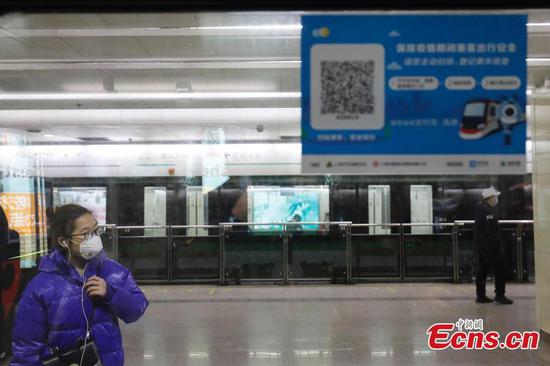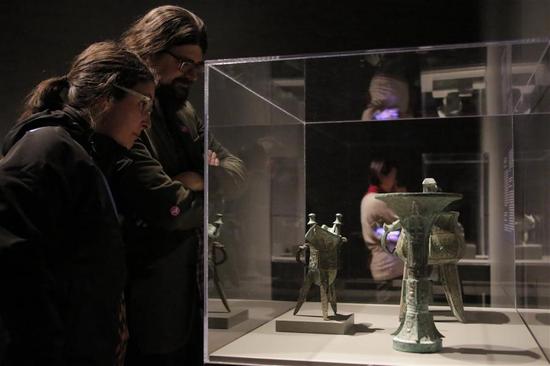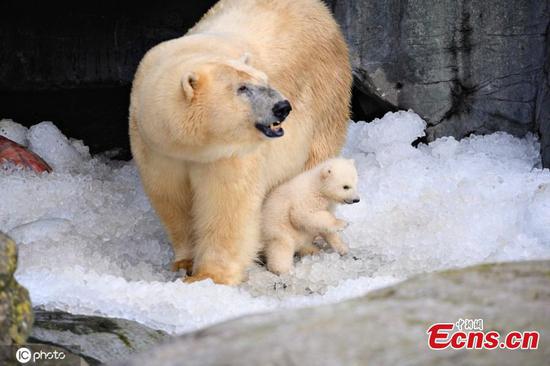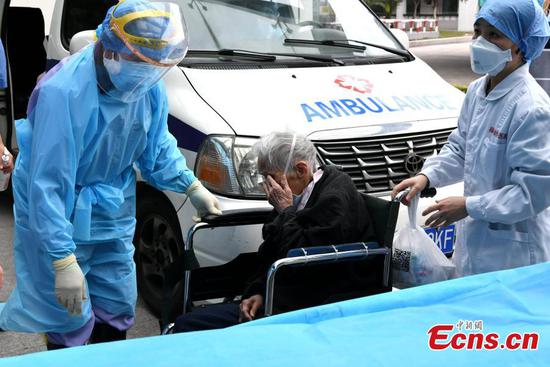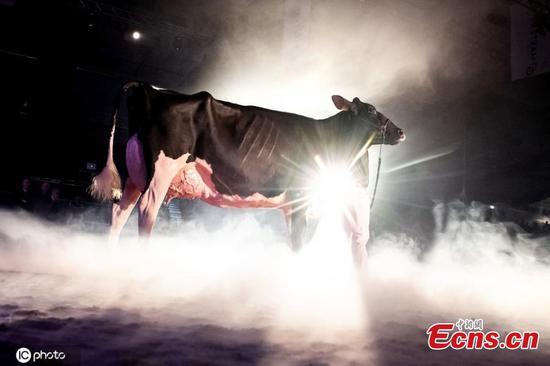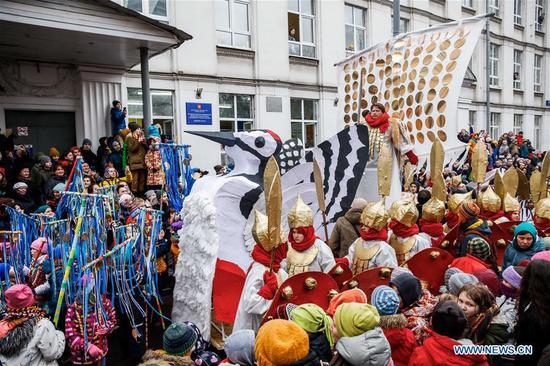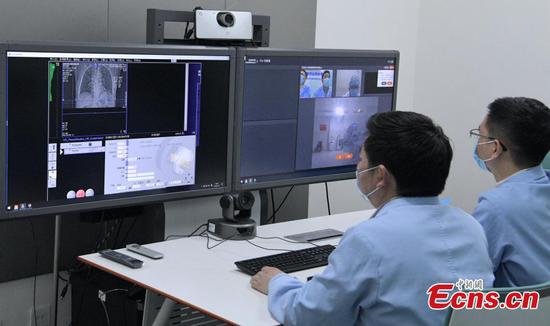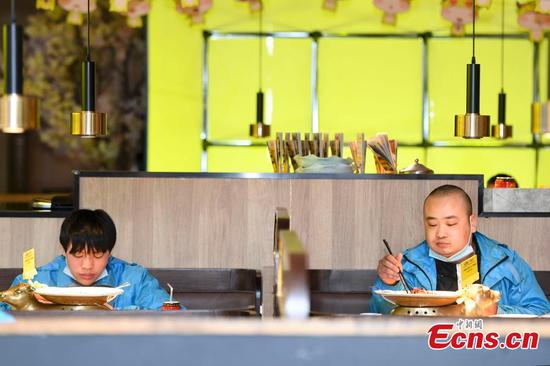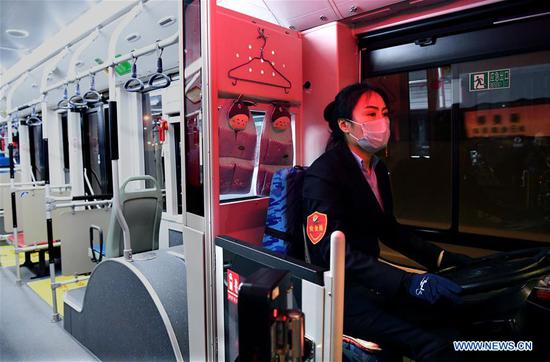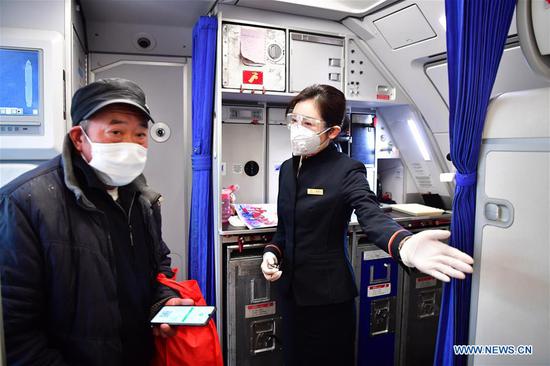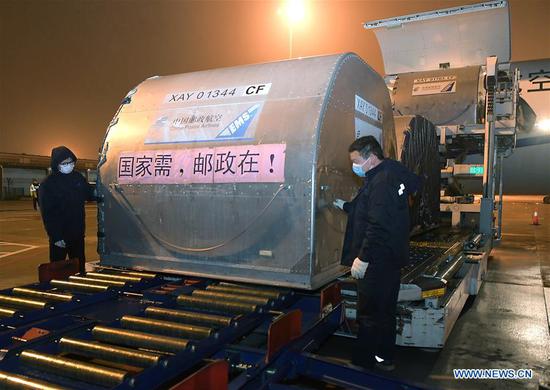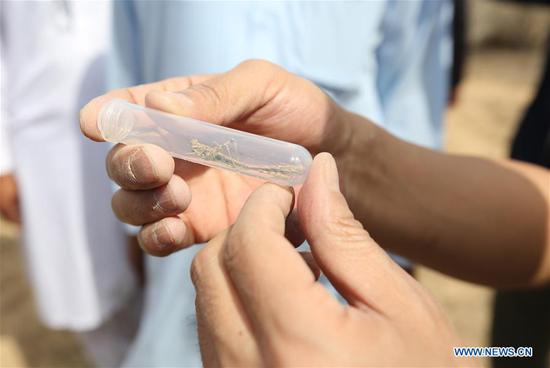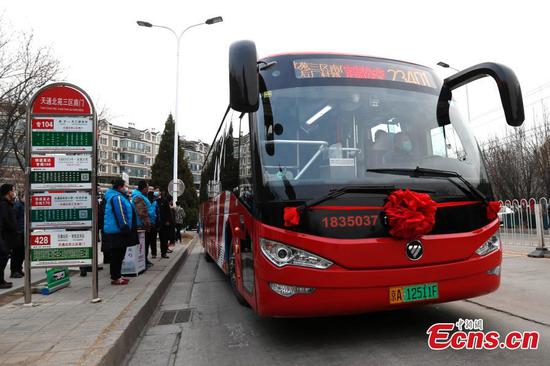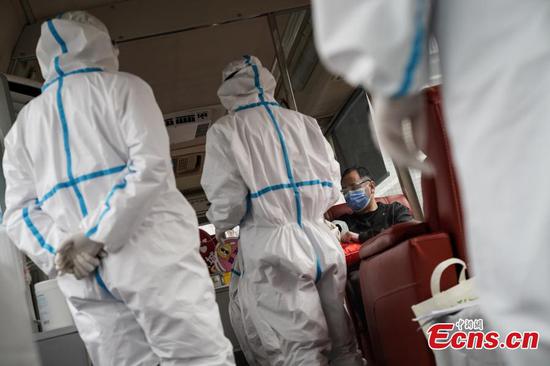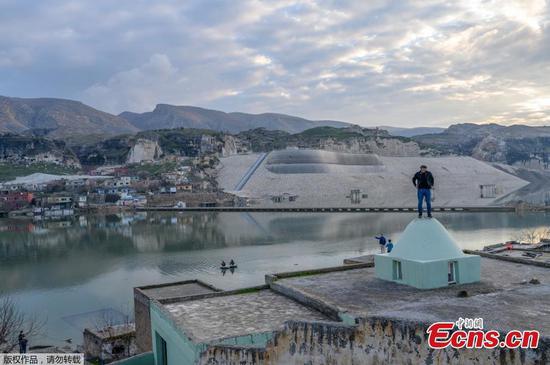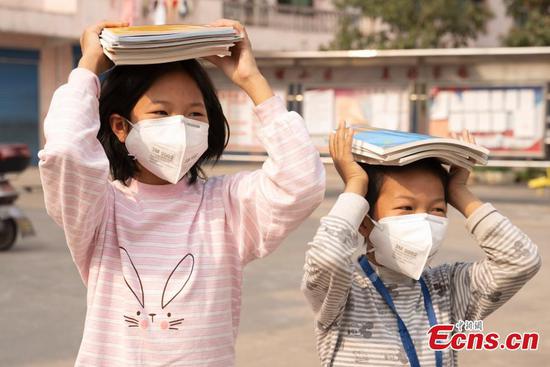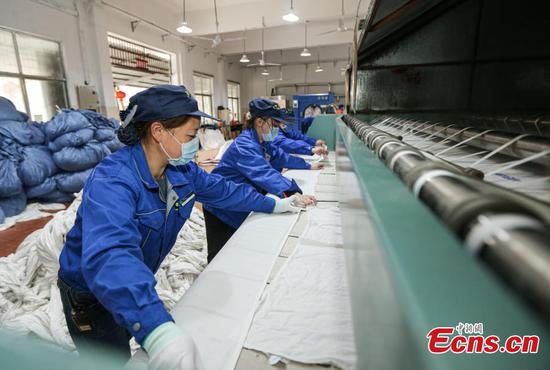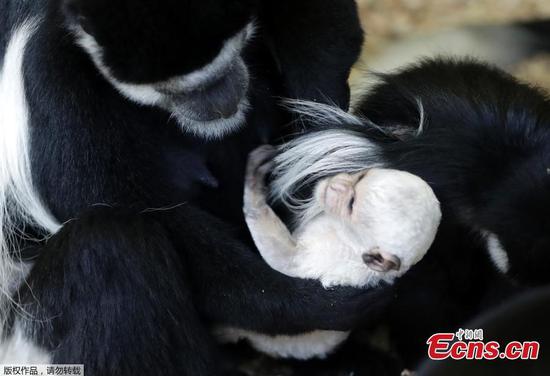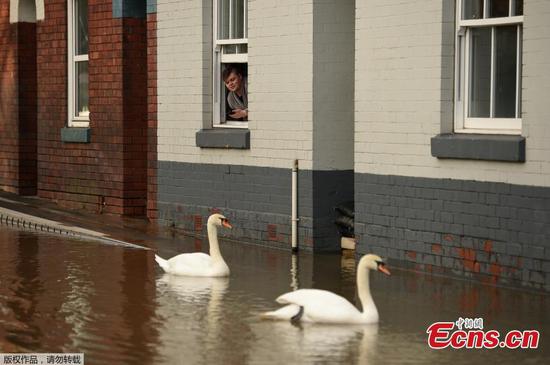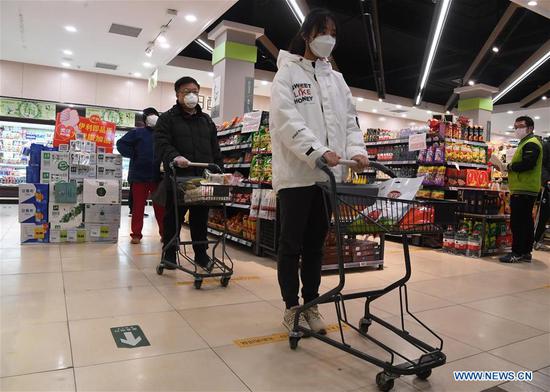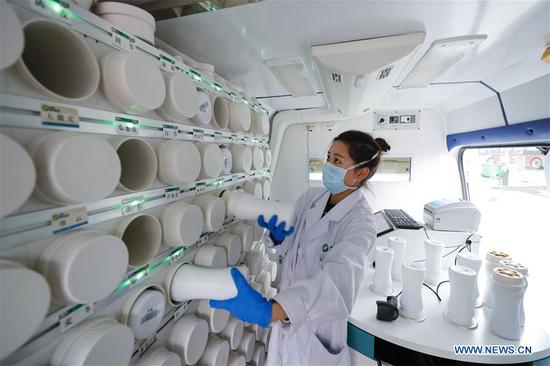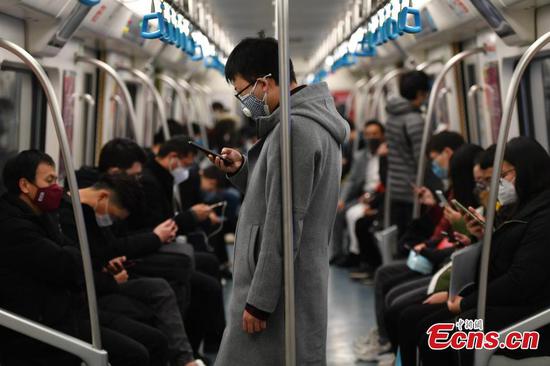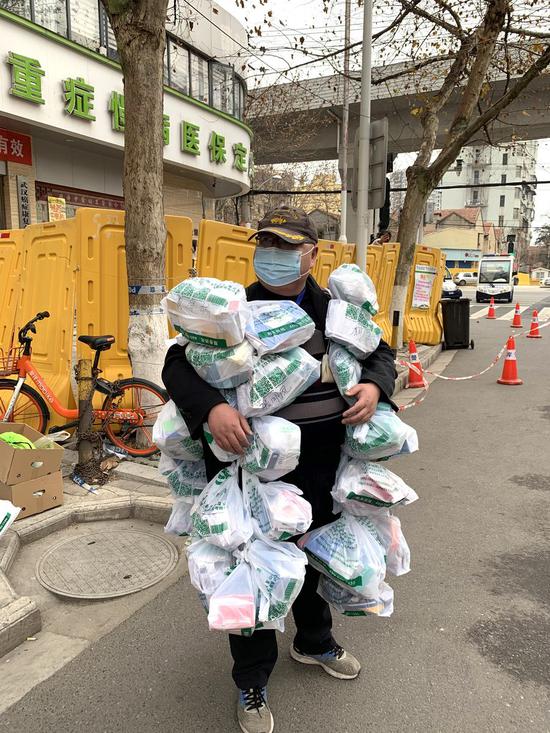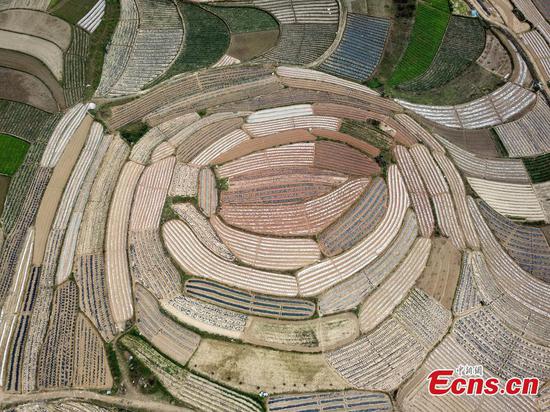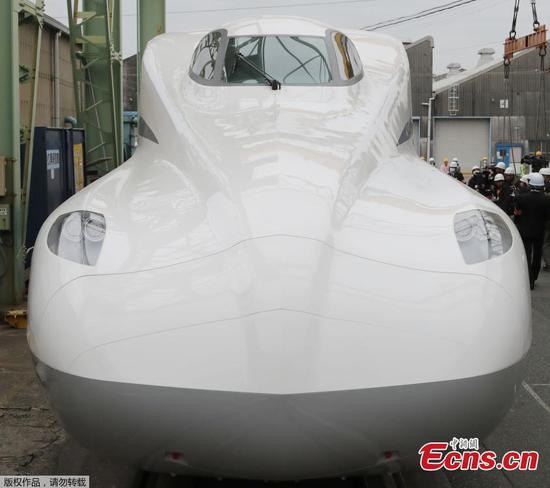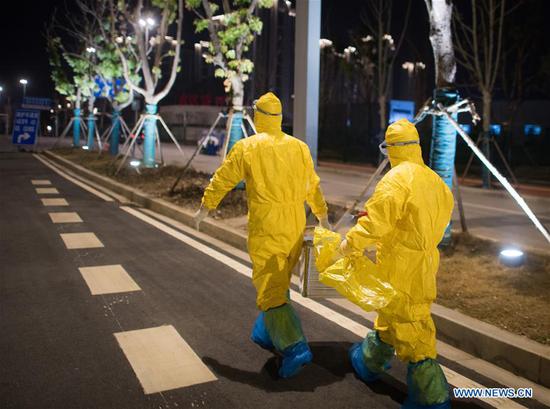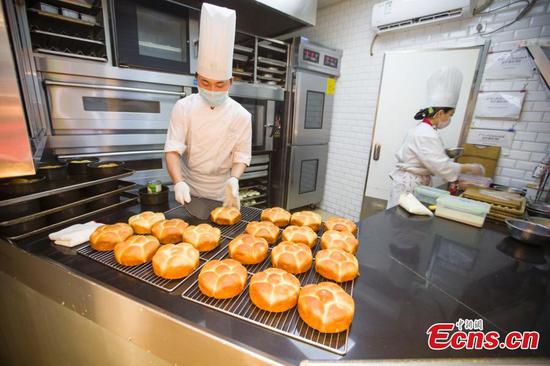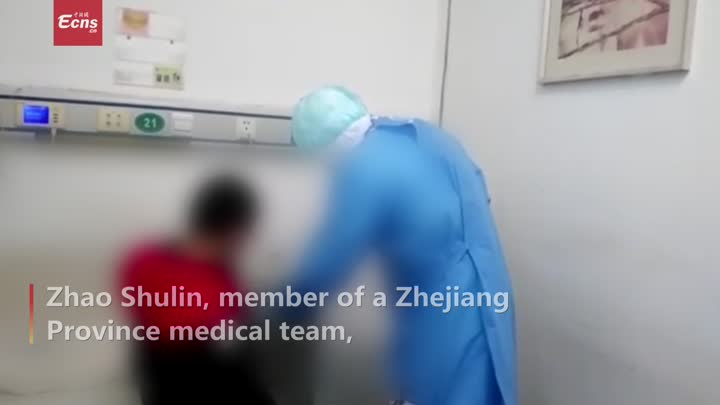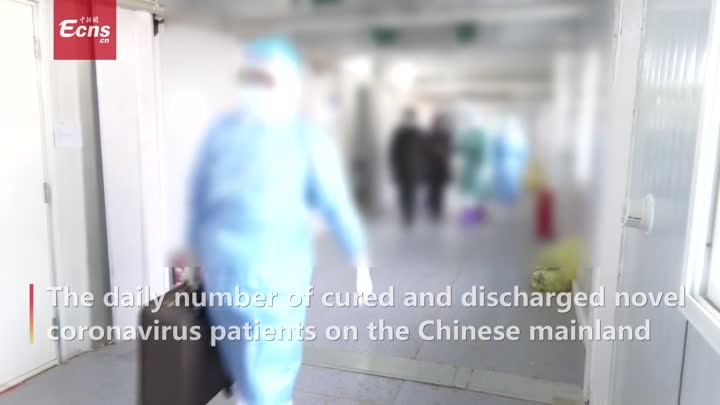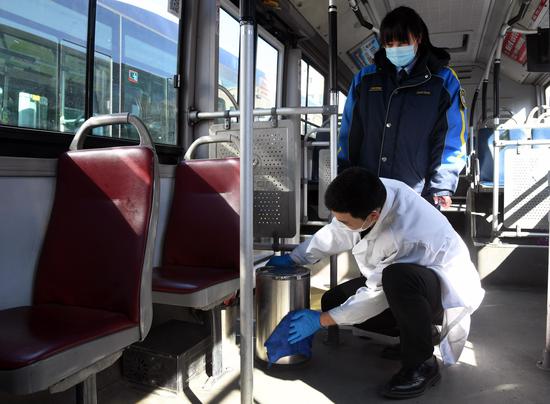
Bus driver Li Tengfei (front) disinfects the garbage can on the bus in Beijing, capital of China, Feb. 16, 2020. (Xinhua/Ren Chao)
STRICT MEASURES
The massive passenger flow poses a great challenge to Beijing's epidemic prevention and control work and tests the wits and capabilities of the government and the people.
China Railway Beijing Group installed nearly 900 thermo-detectors at railway stations back in January. It has been disinfecting public places and promoting knowledge of epidemic prevention and control by various means.
Beijing subway and bus operators have also taken measures to protect passengers.
At 4 a.m., Zhang Bin starts his day at the bus terminal near Beijing South Railway Station. Zhang's work is to disinfect the buses. "Handles, coin boxes, card readers and doors are key areas of disinfection," he said.
The bus drivers are also required to take a temperature check beforehand and they have the right to turn away passengers who insist on not wearing masks.
Beijing Public Transport, which operates the city's bus fleets, has opened special transit lines near railway stations and increased the departure frequency of buses with high ridership to avoid crowding.
Now Beijing has been conducting daily disinfection and body temperature checks of passengers in 23 subway lines covering 405 stations.
WORK RESUMES CAUTIOUSLY
In an automobile production base of Beijing Benz Automotive Co., Ltd. located in the south part of the city, workers are busy working on the assembly lines with masks on, with people disinfecting the whole workshop constantly. In addition, each worker has to verify their identity and get their body temperature checked before entering the workshop.
Things are getting back on track in the factory, said a worker surnamed Liu who has been working there since its establishment. "But the priority now is to guarantee people's health and safety," Liu said.
According to the State-Owned Assets Supervision and Administration Commission of Beijing, 43 enterprises supervised by the commission have resumed work, and more than 90 percent of the city's supermarkets, malls, and logistics companies are operating.
Construction projects in the city, including the construction works for the Beijing 2022 Winter Olympics, have gradually resumed. At the construction site for the theme park Universal Beijing Resort at Beijing's sub-center, more than 5,000 workers had returned to work as of last week.
Li Yingjun, 43, returned to a construction site at the north third ring road a few days ago via a charter bus, together with 29 of his fellow workers from their hometown in southwest China's Sichuan Province.
The government arranged the charter bus for them in order to reduce the risk of being infected on their journey back, Li said, adding that they are currently under quarantine in isolated dorms. "These measures are necessary. We understand that it is for our own good," Li said.









